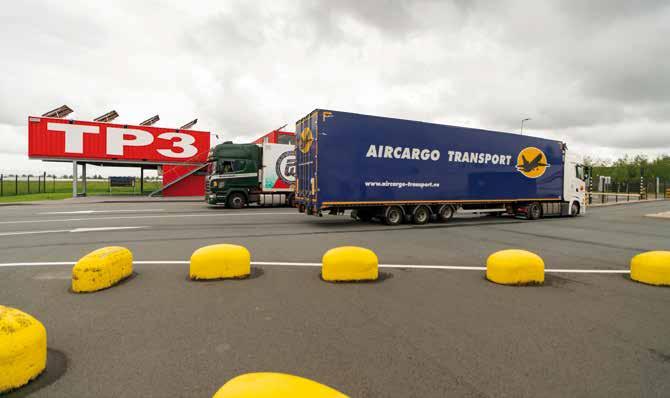
3 minute read
Column: Paul was right
by Cargomedia
Paul was right
Text Eric Aarsen, General Manager VCK Logistics Air- & Ocean-
Advertisement
freight
Photography VCK Logistics
Imagine: a shipper, enjoying a morning cup of coffee, logs in to see the price and availability for an air cargo consignment. He gets to see various options, can make a choice and then books it. With just a couple of clicks he is finished as most of his details for the booking are already available. Not only does the shipper have all the details of his current consignments at his fingertips but he also has the possibility to advise each consignee individually. Finally, his management reports are also created with a couple of clicks. Does this sound like utopia? Or does it sound like something that in 2021 should be normal?
It was, I think, some time in 2009 when about six of us were invited by Paul Parramore to a meeting room to talk about his idea to sell air cargo online via a web portal that later would be called Aircargoshop. Paul’s foremost argument at that time was the notion that if people sitting on their sofa at home in the evening were prepared to enter all sorts of details to place an order online, then they would also be prepared to do that in the daytime to ‘order’ cargo space.
I was fairly new to the meeting table and certainly did not have the loudest voice but I was somewhat sceptical. It was not that I did not like the idea, on the contrary, I am always an interested fan of progress and modernisation, but I was sceptical because I thought that the customer himself would have to do a great deal in the portal. Activities that the forwarder would then no longer be doing and the only thing he would get out of it was a small price advantage. Of course, price is important but, in my eyes, customers are always incredibly busy. Whether this is correct or not is immaterial, the point is that you must use this as the starting point and try to make your customers’ lives as easy as possible. But with Aircargoshop they had to do more rather than, as they usually did, throwing the lot over the fence to the forwarder. So this was not making it easier. Unfortunately, Aircargoshop no longer exists. B2C is no B2B.
All the same Paul, as a modernist in the Dutch air cargo community, was on the right path. He was just a bit too early, the market was not yet ready for it. A little like clap skates that were invented in 1894 but only made their breakthrough when Tonny de Jong wore them to become European Champion in 1997.
Paul’s idea was not a mechanical product like clap skates but data management. Developments have progressed with lightning speed. There was no need to wait 100 years for a breakthrough. Aircargoshop saw daylight in 2011. Ten years later and there is ever more possible in data sharing and there is so much more data available than back then to actively unburden our customers further. The expectation pattern of B2C services has now been comprehensively extended to B2B. So are all lights on green?
Supply chains usually consist of many supply chain partners. In order to keep information relevant, it must not only be shared but, more especially, the data must be complete, consistent and qualitative. This means for the air cargo community that the airlines, handling agents, forwarders and truckers in dialogue with the shippers, must put as much focus on ‘pushing through’ qualitative data, as they do on pushing through pallets and boxes.
Here lies the on-going challenge for the air cargo community. At Schiphol we have the unique situation that all ‘blood groups’, including the government, talk with each other in order to ‘polder’ ourselves into the future. Nevertheless, data development proceeds faster than we can get all involved parties pointing in the same direction. Qualitative data makes processes more efficient and thereby further reduces the burden on the shippers.
There is certainly hope. Initiatives such as the Milkrun, eLink and the SCMP project are examples of what makes the Schiphol cargo community unique, perhaps in the world. Admittedly, these sorts of projects initially deliver headaches but ultimately the results lead to more efficiency, better insight and more predictability in processes. Logistics is, after all, all about predictability.
I am convinced that if we all continue to pull together on the (data) development cart, then we have a great opportunity not only to become European Champion Cargo but that Schiphol Airport will be seen as THE Aircargoshop of Europe. Paul would then indeed be proven right.










